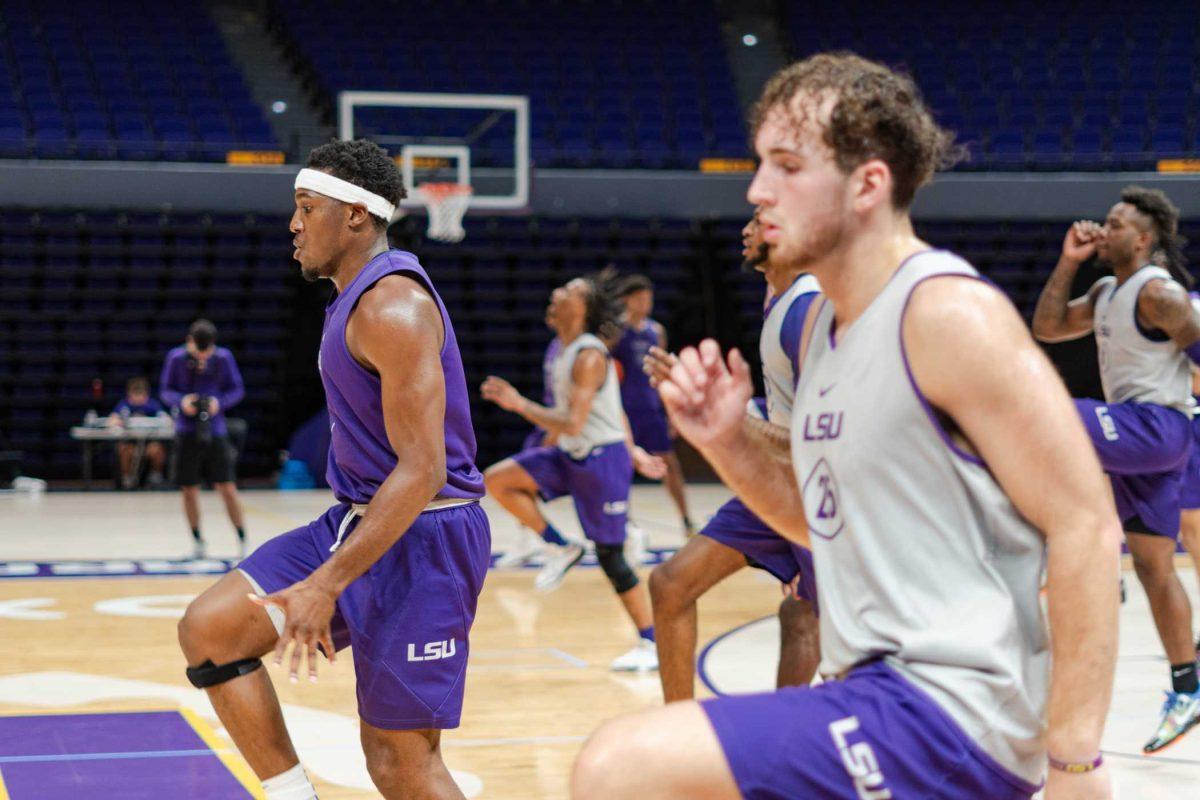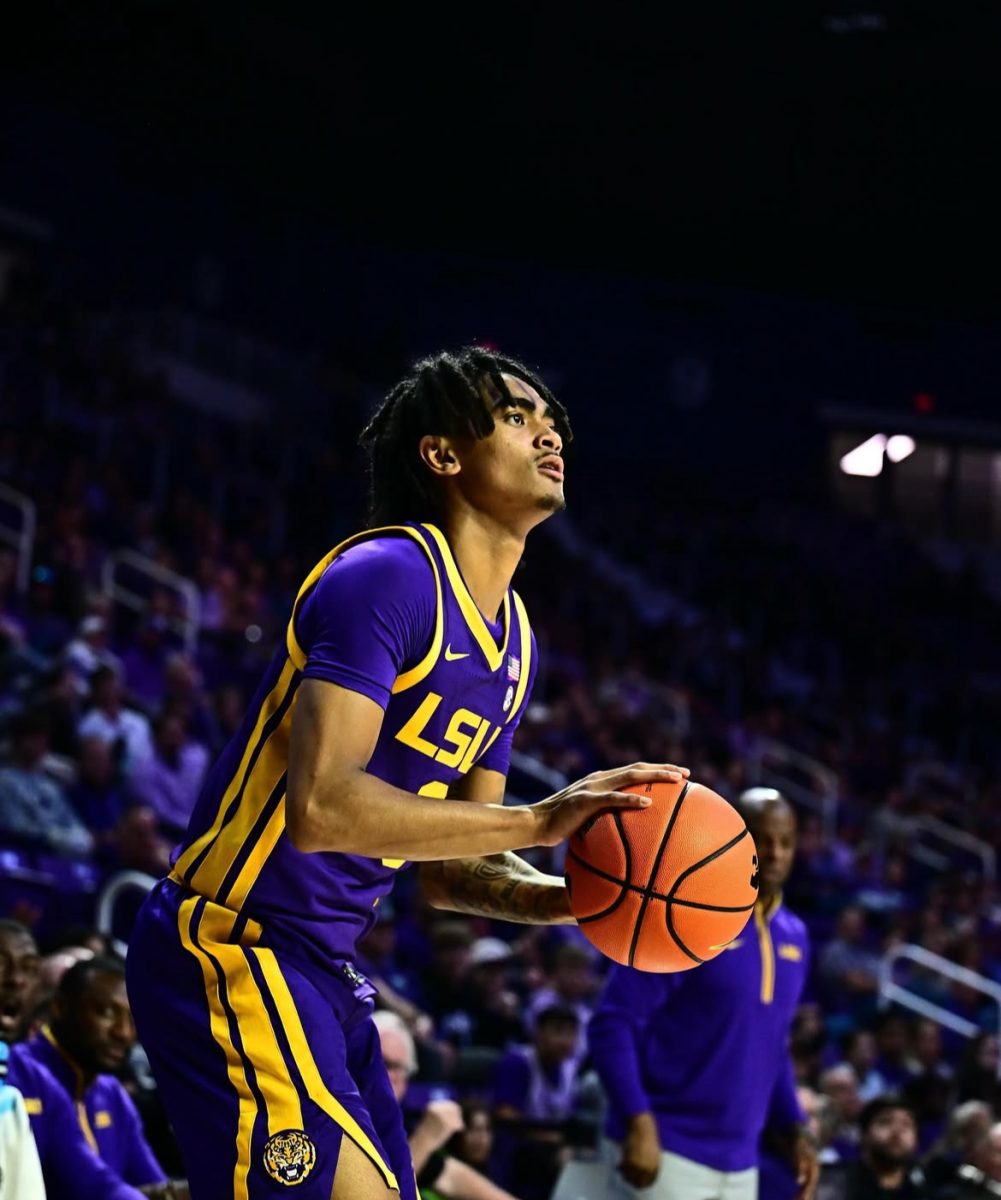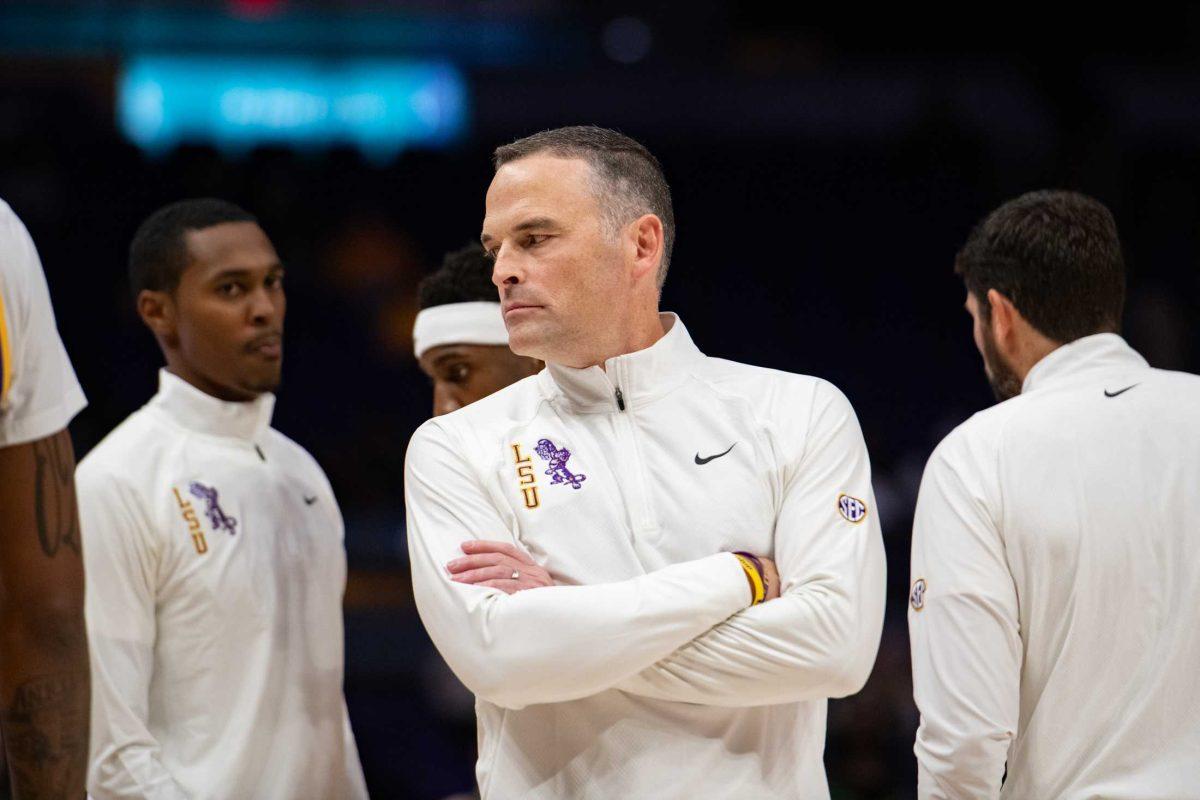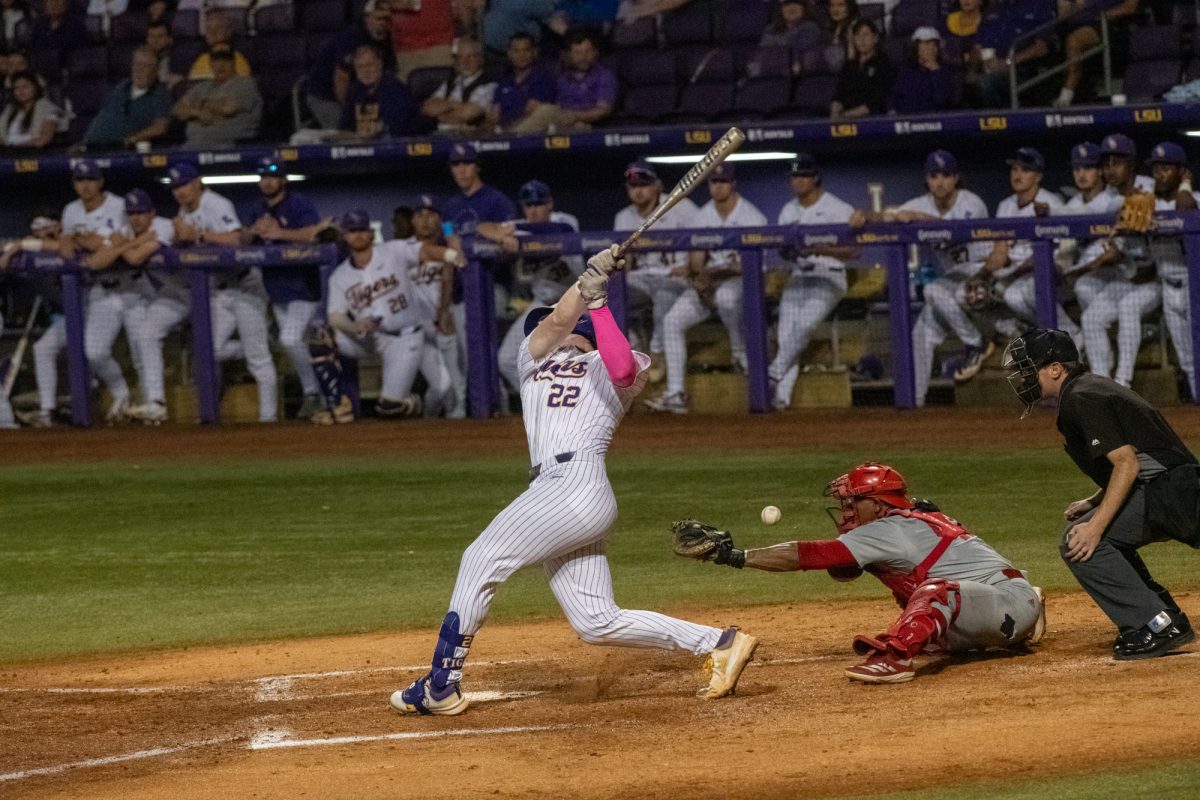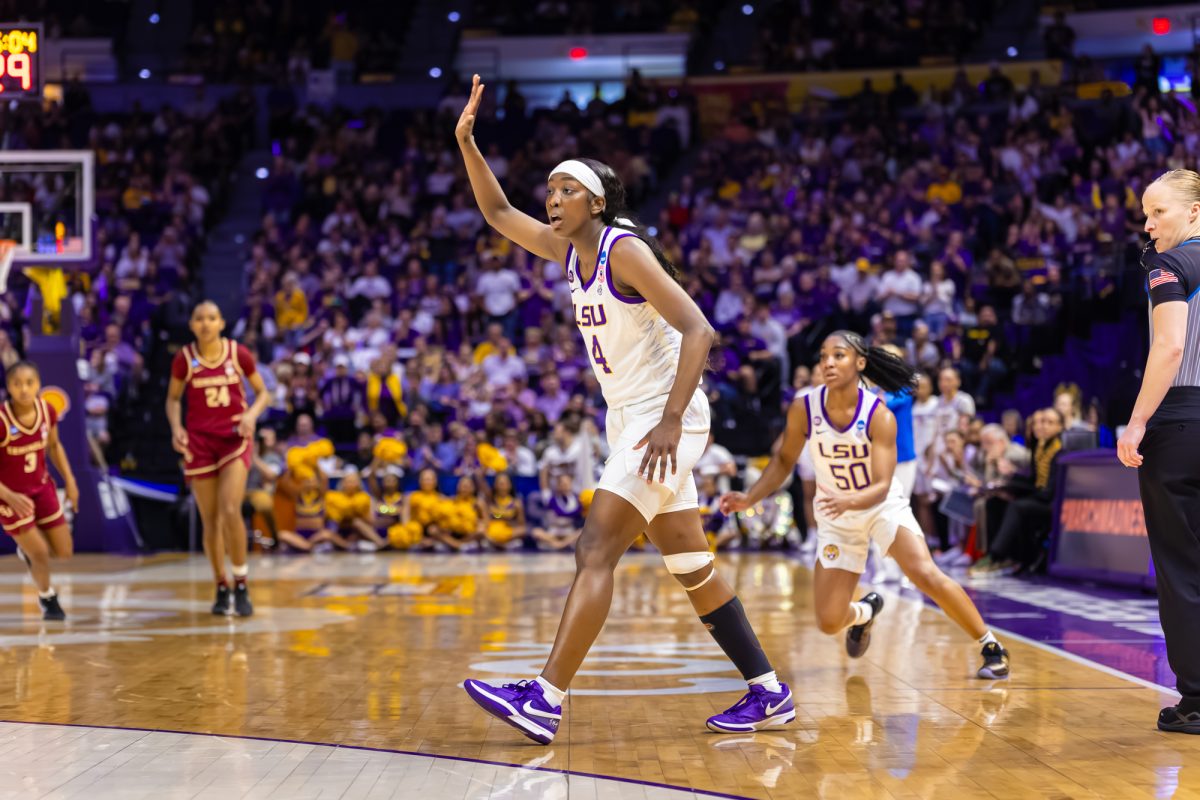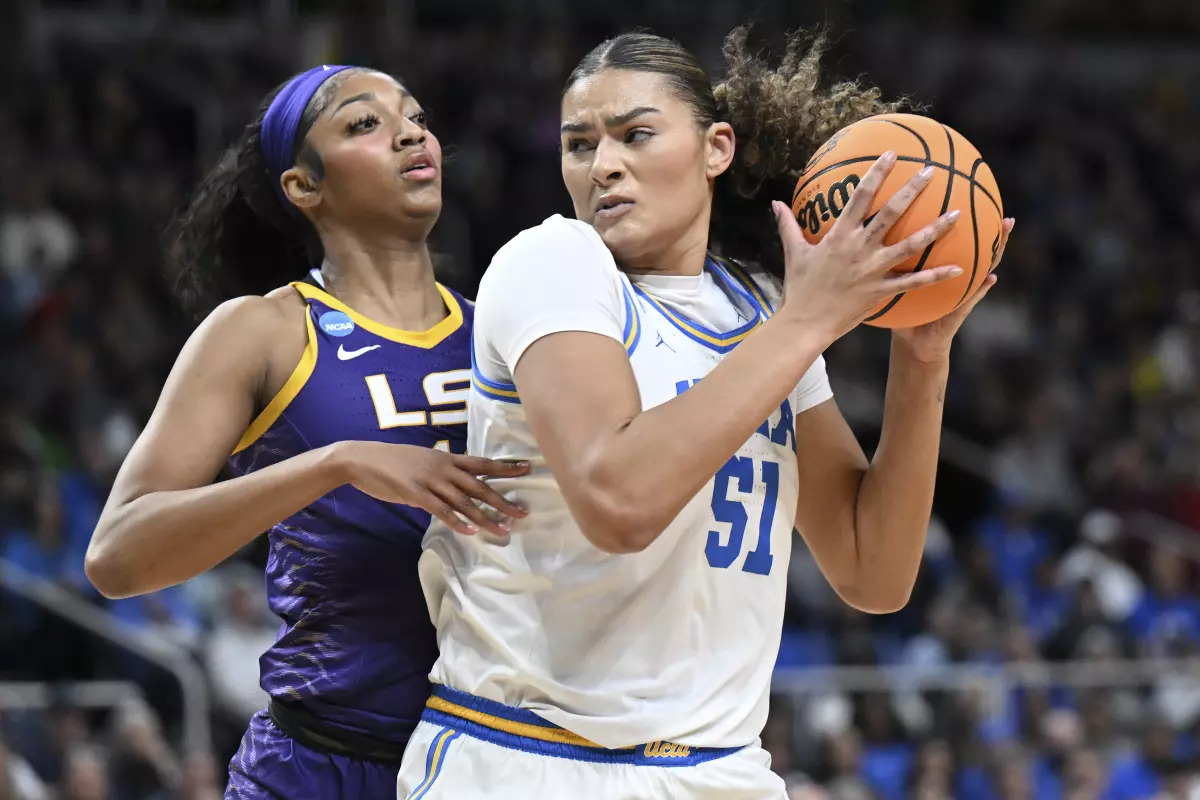In March 2022, new head coach Matt McMahon inherited an LSU roster with zero returning scholarship players, victim of a transfer exodus following the mass recruiting violations that led to former head coach Will Wade’s firing.
In the coming months, he worked hard to assemble a roster, convincing several players to return, signing four high school recruits and bringing in many transfers, including some that followed him from his former position at Murray State.
The team got off to a 12-1 start, one of the best in LSU history, with an impressive run through the non-conference schedule and an upset of ranked Arkansas in the South Eastern Conference opener. It looked as though LSU had a chance to band together as a team under a new coach, overcome adversity and make something out of the season.
The Tigers won just two games the rest of the way, at one point losing 14 in a row, the second-longest losing streak in program history.
The storybook season wasn’t meant to be. The strain of assembling a team from nothing, pulling almost entirely from the transfer portal, was too much. The product on the court never gelled, and guard Adam Miller never broke out as the elite scorer and team leader many expected he’d be.
At Murray State, McMahon made three NCAA Tournament appearances with teams of players that he had time to mold and teach, including future NBA star Ja Morant. He didn’t have that foundation in year one at LSU.
“When I got here in April, all of [what Wade built] was gone. No players, no foundation, no culture, no nothing,” McMahon said.
This year, despite McMahon having to dip extensively into the transfer portal again, there’s hope that the foundation is sturdier ahead of the Nov. 6 regular season opener.
For one, McMahon’s transfer class seems to be more accomplished. Jalen Cook, Carlos Stewart, Will Baker and Jordan Wright, the team’s most prominent incoming transfers, averaged over 10 points per game last year as starters for 20-win teams in tough conferences.
“We wanted to identify players with proven track records of success, coming from the top nine leagues in the country,” McMahon said.
LSU seems to have added players with the elite scoring ability that was lacking from last year’s roster, aside from Murray State transplant KJ Williams. McMahon admitted that last year’s team was thrown together with an element of desperation, and LSU got to be more selective this time around.
Although the influx of scoring will obviously help the team on the court, McMahon is cautious that it may potentially cause difficulty in establishing a pecking order. He won’t let that change the team’s ultimate focus: out-hustling opponents.
“I want us to play with relentless effort, bring great energy. I think, especially when you’re trying to blend a lot of guys who have maybe been the leading scorer or second-leading scorer on their team, you have to play with great unselfishness,” McMahon said.
“We’re just establishing an identity of being tough, playing hard-nosed basketball, you know, the kind of blue-collar style that he [McMahon] plays,” said Wright, a Vanderbilt grad transfer and Dunham school graduate. “I think we’ll ultimately be successful and win some games, built on those principles.”
Another focus in the offseason was adding size and athleticism, players who can defend multiple positions in order for the defense to switch comfortably, something that was missing for an LSU team that allowed the second-highest shooting percentage in the SEC last year.
More importantly, though, McMahon sought to build sustainability. Of the seven transfers the team added, four played high school basketball in Louisiana (with the other three from neighboring Texas). The hope is that the effort to add local products will help support continuing success.
“There’s unbelievable pride and passion in LSU. I think young players grow up here wanting to play at LSU and wanting to represent their home state. So to have those guys, it’s really important,” McMahon said.
Though the starting lineup is unsettled, it’s clear that Cook, a Tulane transfer and Louisiana product, will be the engine of the offense after averaging 19.9 points per game last year for the Green Wave.
The snag: Cook has yet to be cleared to play this season by the NCAA. As a two-time transfer who started his career at LSU, it’s unclear if he’ll be ruled eligible or have to sit out the year.
LSU is preparing for life with and without Cook, as his absence changes the offensive scheme, based on the skills and preferences of the other ballhandlers in the room. Still, it’s clear that this team’s ceiling is highest with Cook.
“Jalen’s a tremendous scorer. He brings a lot to our team. He’s someone that can really elevate our game and the team,” Baker said.
Without Cook, Santa Clara transfer Stewart figures to run the offense. Baker’s post presence and perimeter shooting and Wright’s hustle and all-around skill, as well as their wealth of experience, also have seemingly earned them slots as starters.
The transfers supplement a roster with five scholarship returners, up from three the year prior, including wings Mwani Wilkinson and Tyrell Ward, reserve guard Trae Hannibal and bigs Jalen Reed and Derek Fountain. All are expected to play sizable roles.
Unlike a year ago, LSU faces several challenges in the non-conference schedule, including matchups with Dayton, Kansas State, Texas and Syracuse. After that, the Tigers will begin matching up with SEC opponents on Jan. 6.
LSU is predicted to finish No. 13 out of 14 SEC teams. After a season in which the offense was hard to come by and the defense was undisciplined, there are plenty of doubters and problems to address.
The team has begun, however, with the little things, making improvements day by day, which is what it takes to rebuild a program.
“It’s important to see every day as an opportunity,” Baker said. “A big thing for us is just stacking days. Every day we try to get better.”



